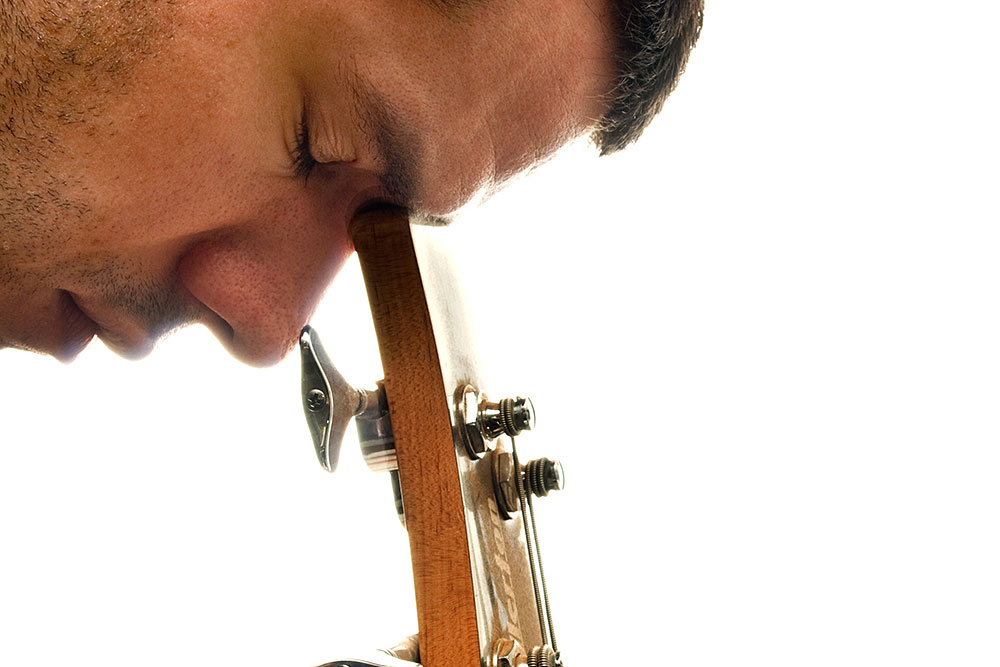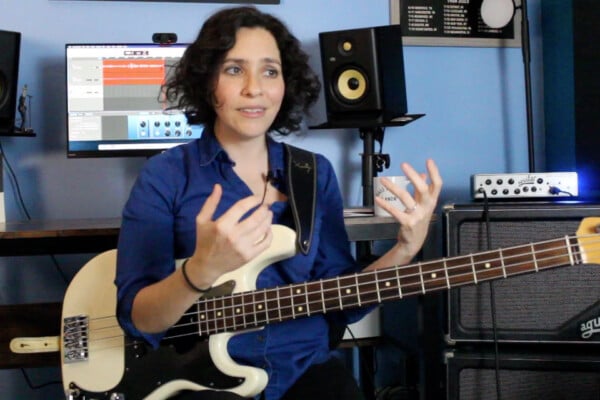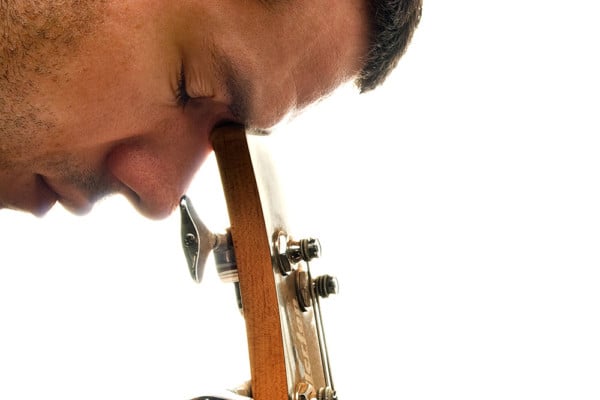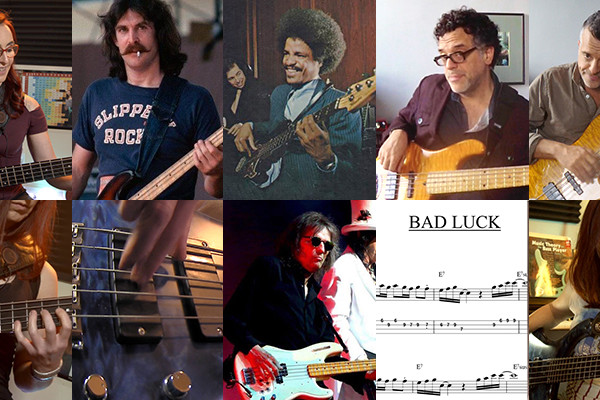Is My Bass Teacher Right for Me?

Q: I’m kind of frustrated with my bass teacher and would like your advice. I’m pretty new to the instrument, and we both feel like I should probably learn a bunch of bass lines. The issue is that I just want him to teach me bass lines and he wants me to figure them out for myself. I don’t know how to play yet so how can I figure them out. Am I crazy, or am I seriously expected to just hunt and peck for stuff?
A: Although I generally think that there is no ONE way to do anything, I mostly agree with your teacher.
However, based on the way you describe the situation, I think there’s a possibility that he or she could probably be more helpful to get the ball rolling.
Generally speaking, yeah, students are usually better served by learning how to find things on their instrument and figure out for themselves how to play them, articulate them, etc…
A good teacher should also help gently nudge you this way or that, always checking your technique, showing you alternate ways to perceive things on the fretboard (or just different ways to play them to either make them easier to play or even to help you feel the line in the right way – different shapes have different feels and lend themselves to different types of articulation for a lot of players), as well as helping to suggest cool new lines/tunes that you may not have heard yet.
Especially in the earliest stages, it can be super helpful if a teacher can help you relate a line to something you’re already somewhat familiar with (oftentimes, a pentatonic, major, or minor scale). Seeing how the line makes use and dances around the scale can help you retain the line but also helps you to begin to understand bass-line construction.
I think that indeed, the energy you expend working around the fretboard looking for sounds is time very well spent. It may feel like you’re just guessing your way around the fretboard, trying to figure out the notes in a line, but you are also making yourself familiar with where all the notes are, the relationships between shapes and sounds, ear training, and putting hours into your muscle memory to boot.
As with most things, a little bit of both is best. You should invest time in figuring things out for yourself while your teacher also helps you to do things properly and also helps to steer you towards helpful practice techniques, cool bass lines, etc…
If I had to choose one or the other, with no shades of grey, I would definitely lean towards you finding lines you dig and figuring the stuff out on your own. When a teacher just spends the lesson time showing you a bass line to play, you will learn how to play that bass line and… not much else, really. But when you spend all week coaxing that line out of your instrument, note by note, straining your ears to hear what notes are even being played, and figuring out how to play it comfortably, you are learning so much more than just that bass line. You are learning how to actively listen, how to interpret music, and how to navigate your instrument.
It’s a much more useful skill to have once you begin jamming with friends, coming up with your own lines, and having people teach you songs (not just bass lines), etc…
Have fun with it, though! It shouldn’t be torture. Pick some lines you dig and enjoy the process of coaxing them out of yourself and your instrument. Be playful with it and let yourself sink into the process. There’s nothing more satisfying than figuring it out 100% on your own and nailing it as you play along with the record (or mp3… whatever).
Have a question for Damian Erskine? Send it to [email protected]. Check out Damian’s instructional books, Right Hand Drive and The Improviser’s Path.




If someone shows you stuff and how to play it, then you’ll learn it, yes. But if you check it out yourself you ingrain it.
ofcourse, there can be guidelines given by the teacher to help you get started : like for instance: First try to find the note on the 1, and the note on the next 1 and then maybe the next.. for a couple bars, or even the whole song! Then you know the structure, the skeleton, you have a sketch! If you can do that, you can play bass to the song in it’s most essential way. Play along and watch you time and try to grasp some of the feel. And only after that start to bother of what is played in between those ” 1′ ” step by step, note for note (even in the opposite direction, like counting back) If the line has 5 notes: look for the first note, then the fifth note, then the fourth, third, second…you’ll eventually learn to transcribe in more linear fashion.
100% agreed! I started by reading transcribed bass lines (didn’t work), then I started transcribing bass lines myself (worked better but very constrained), now I’m digging new bass lines note-by-note, and it’s working its magic, I think. But, yes, have fun, if it feels al torture, find some other teacher. There is no free lunch though
Your teacher should show you a tune you like or he will lose you as a student. Once he does show you a tune then he can use it to learn the neck. Good luck.
it would be great if there were bass guitar teachers with the same skills and intensity of teachers of other string instruments, such as violin. I’ve had violinist friends in conservatory made to work on a single bar of music for weeks at a time, with detailed attention given to dynamics, phrasing, timbre, etc. For most bass guitar teachers, having a student just play something accurately seems to be enough, but that is a small portion of what it takes to make great music.